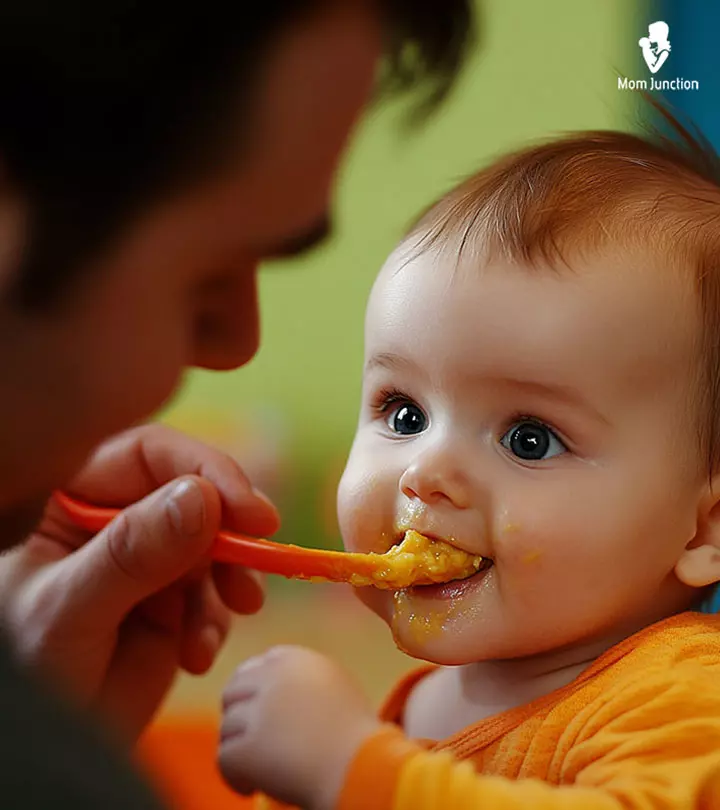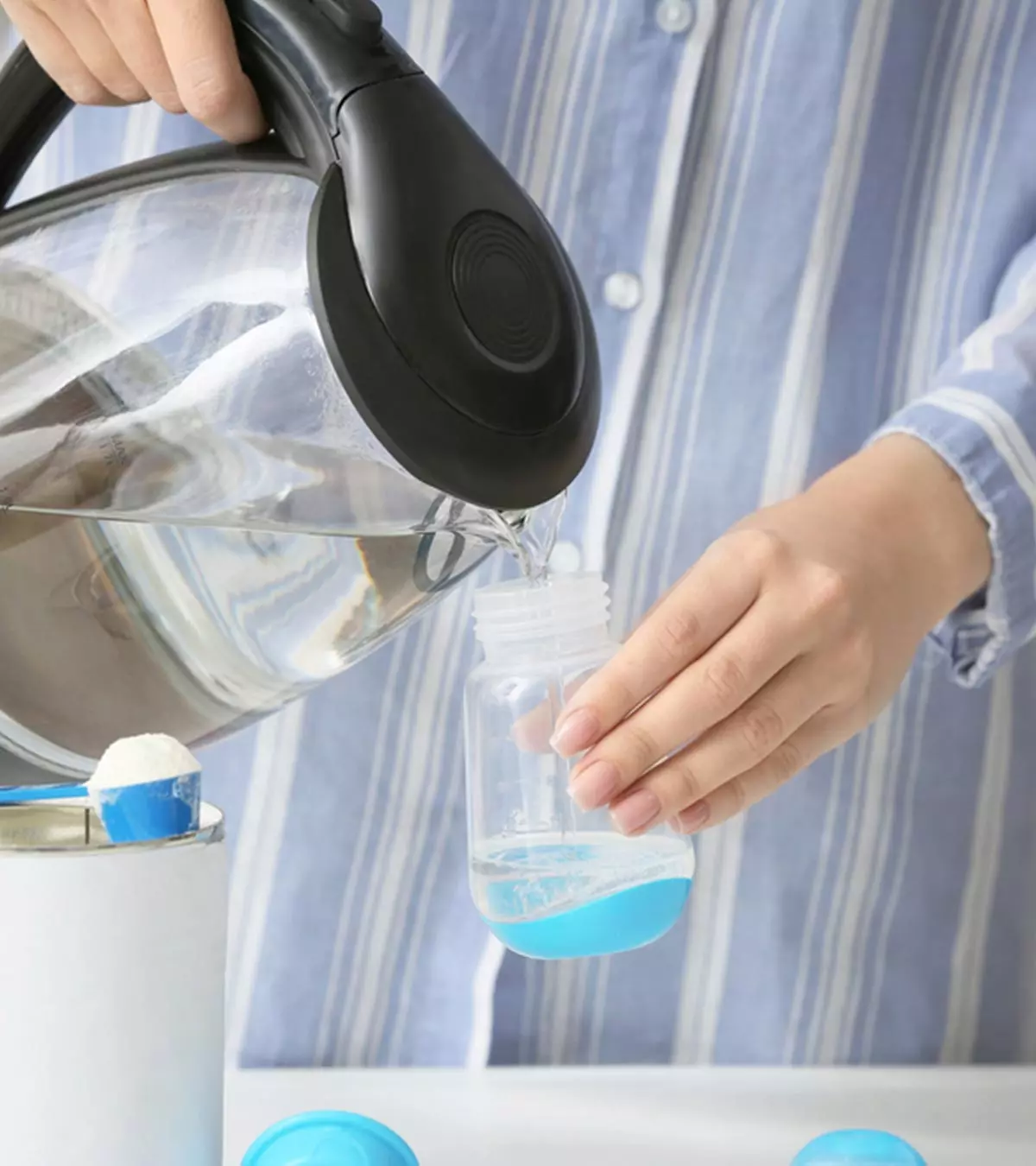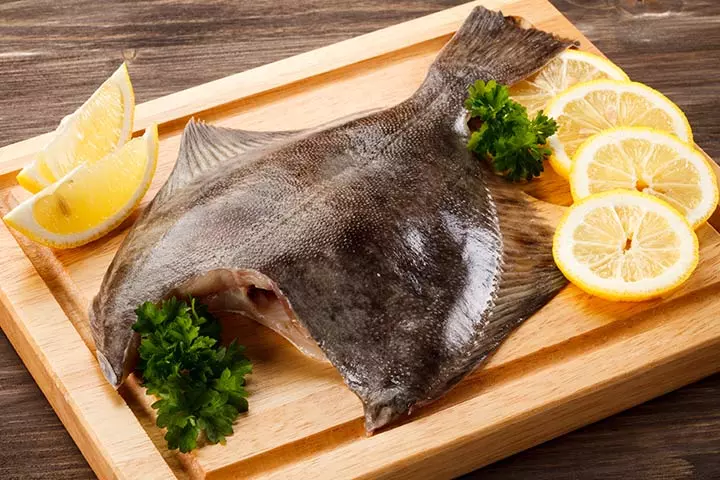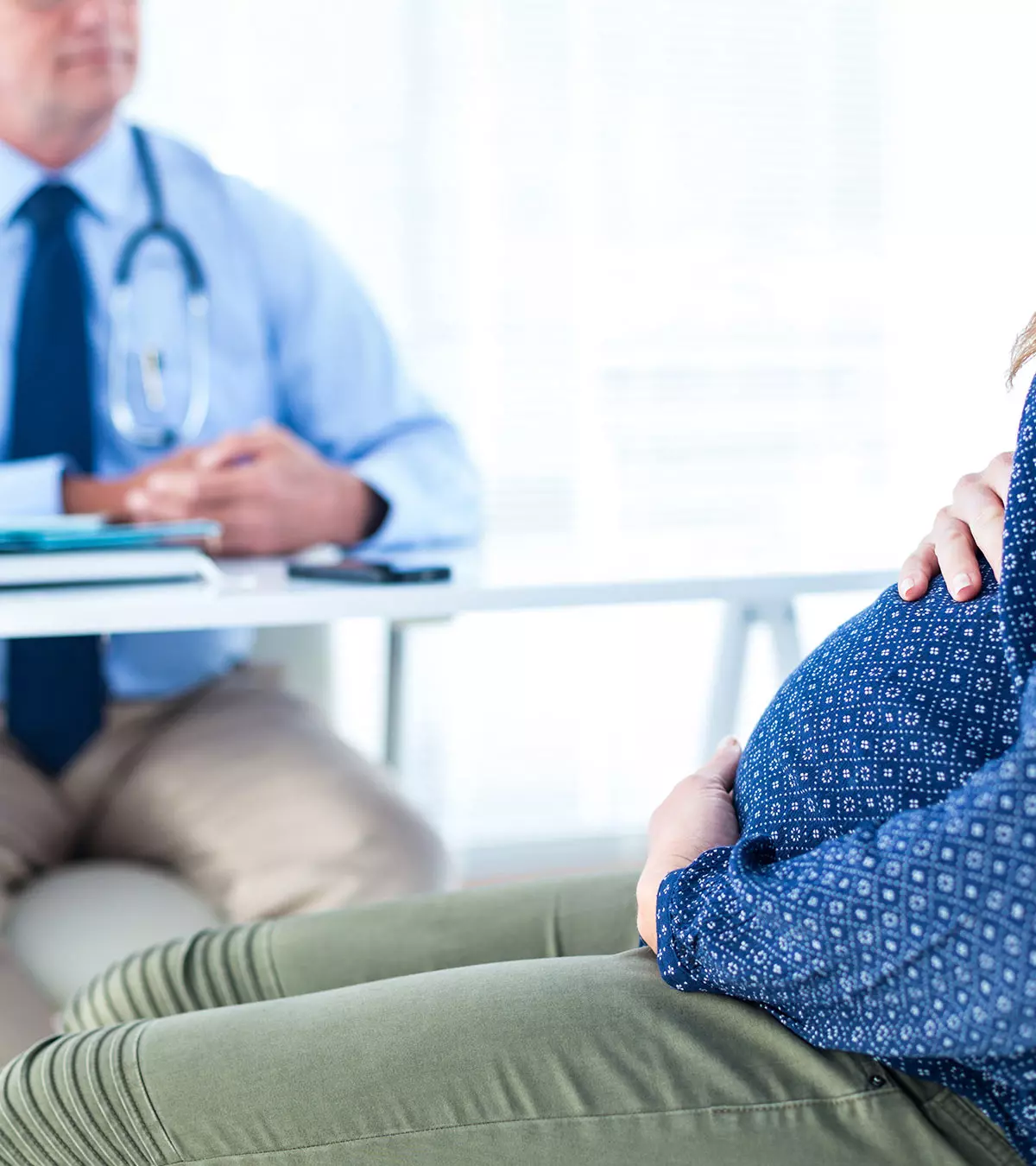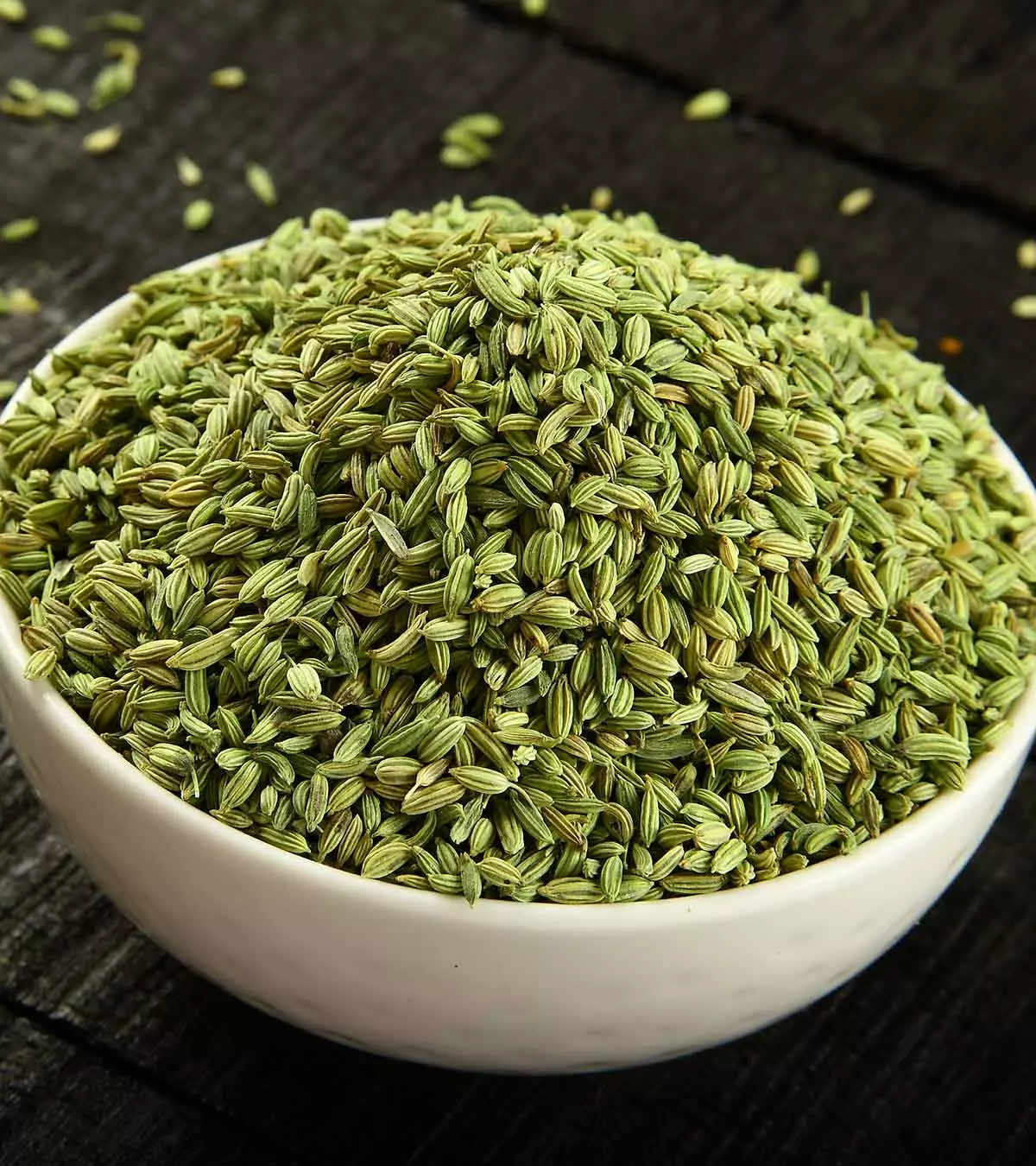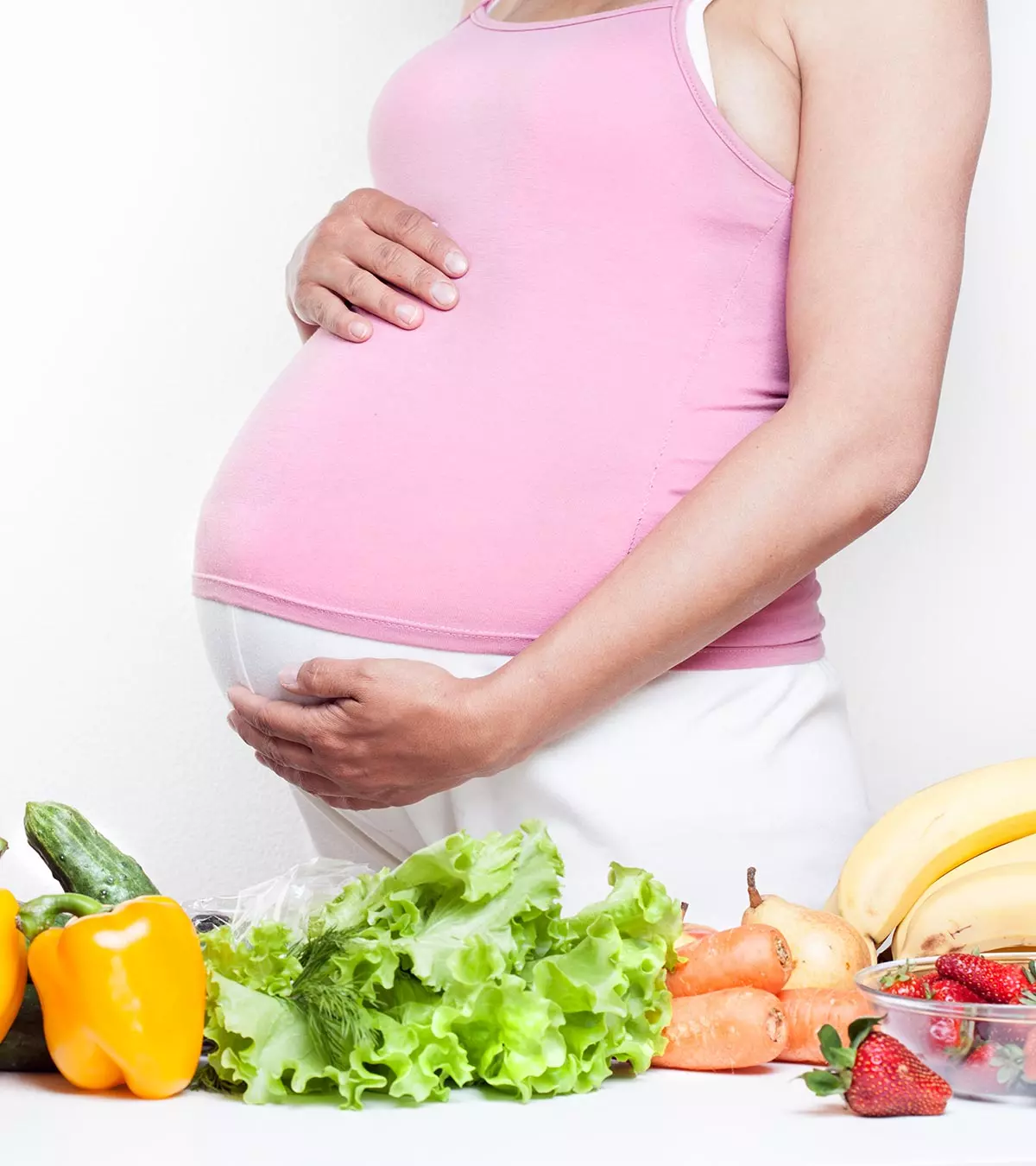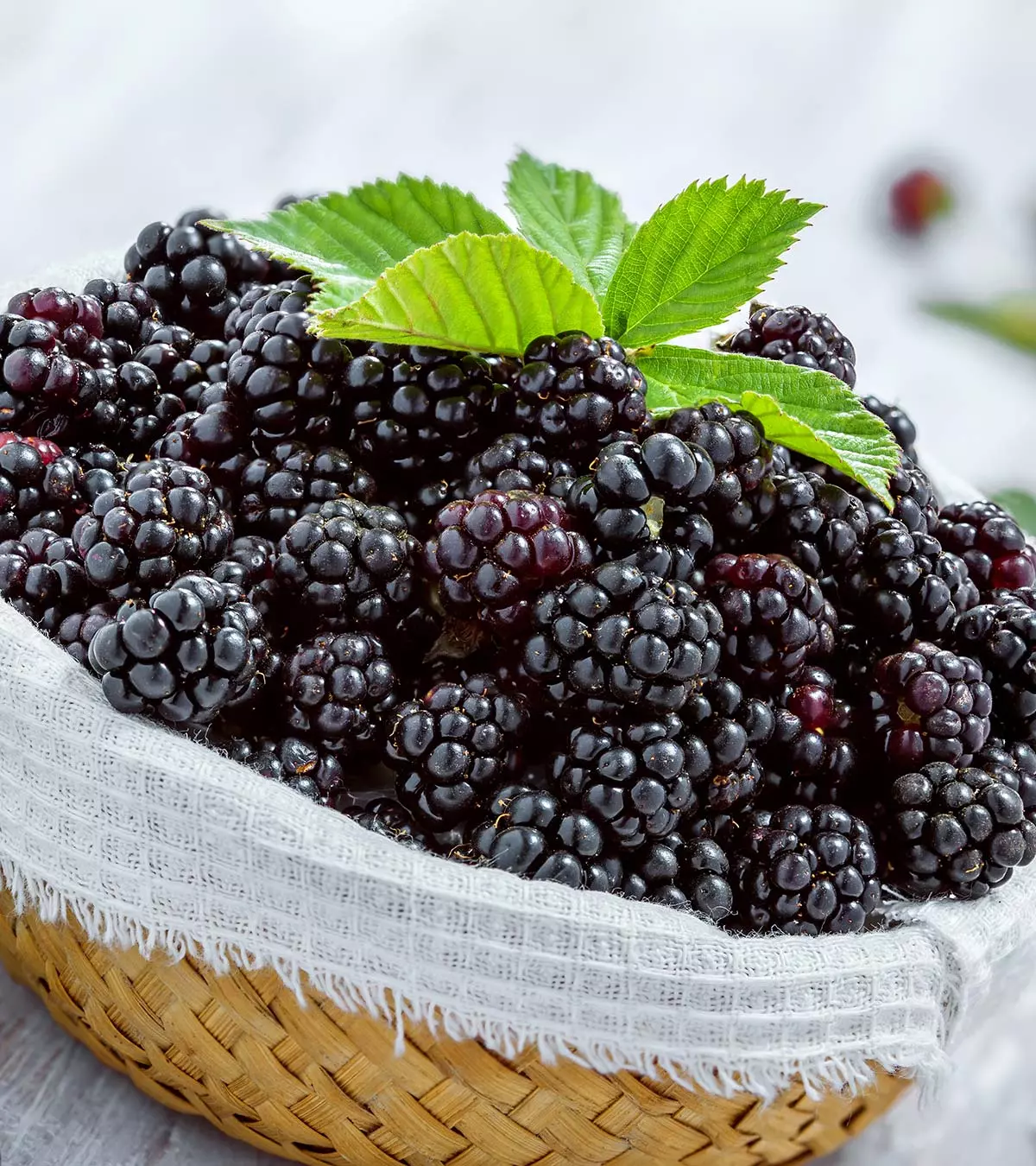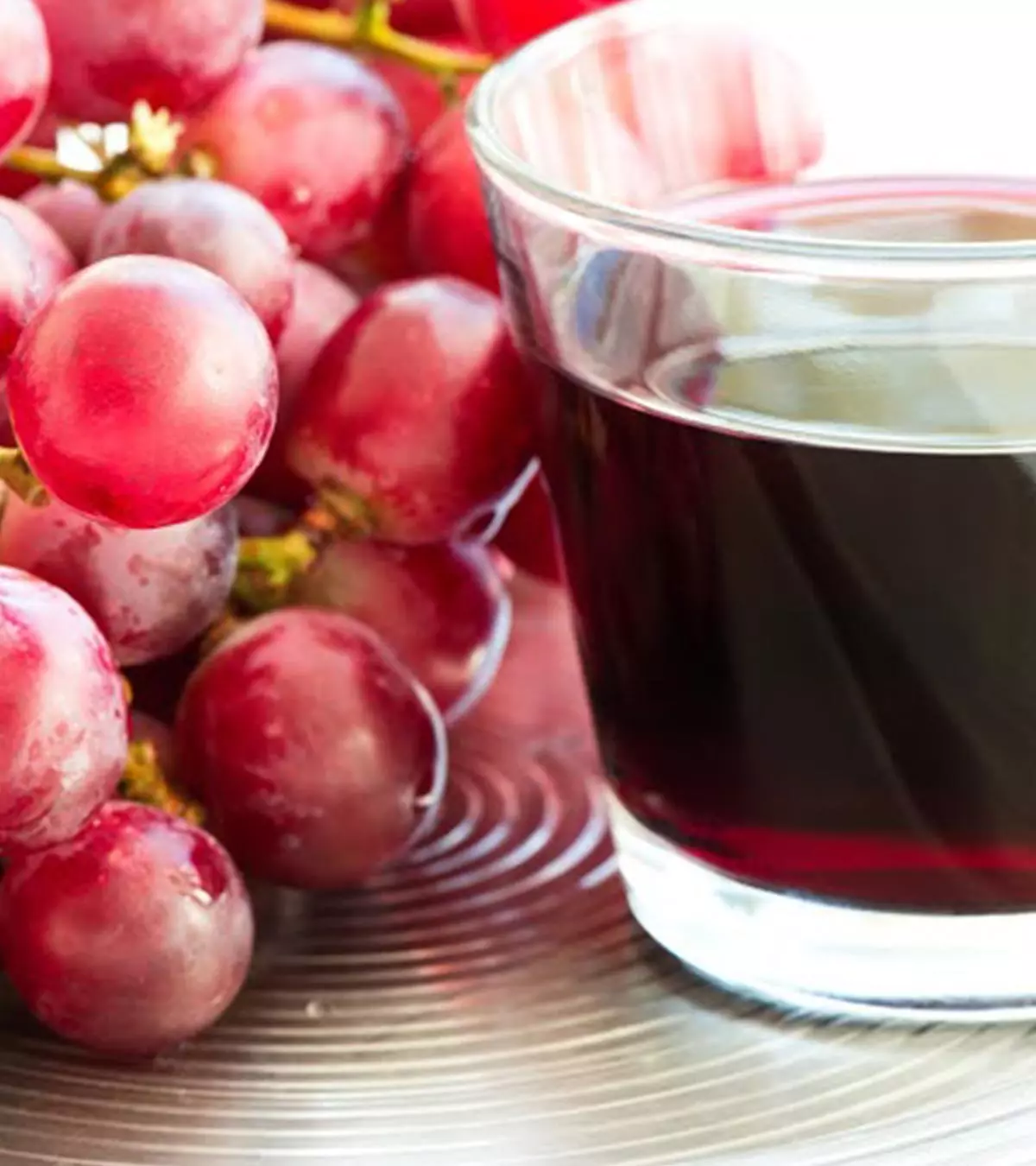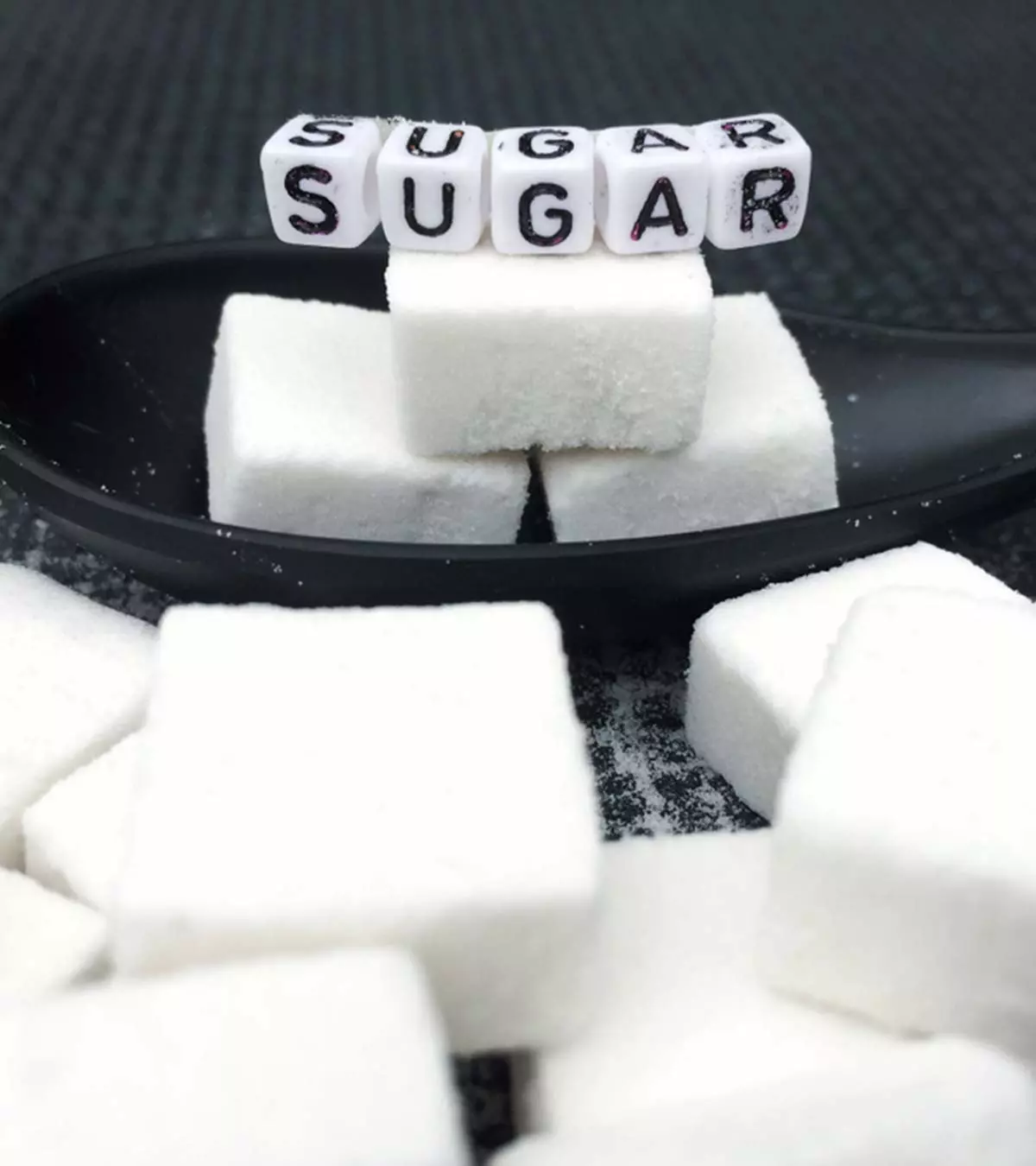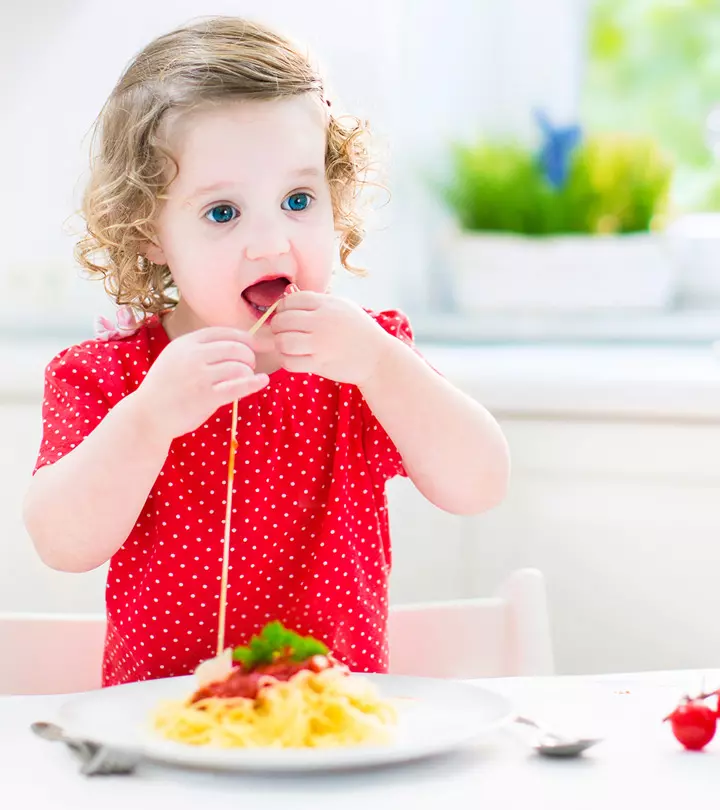
Image: ShutterStock
Obtaining adequate prenatal care and a nourishing diet is crucial when pregnant. Consuming foods rich in potassium during pregnancy can help support fetal development (embryonic growth) and prevent any potential risks of its deficiency. Therefore, you must add enough potassium to your regular maternal diet to support the health of your unborn child.
This post discusses the maternal health benefits of potassium, its daily requirement, and how it influences the well-being of your baby. This post also discusses the causes and symptoms of low potassium in pregnancy, treatment options, and some potassium-rich foods to eat during pregnancy.
Key Pointers
- Adequate potassium intake in pregnancy is vital for muscle contraction, neural communication, and fetal growth.
- Diarrhea and nausea can cause electrolyte imbalance and potassium deficiency.
- Symptoms of potassium deficiency include constipation, muscle cramps, fatigue, dizziness, low blood pressure, depression, and abnormal heart rhythm.
- Potassium-rich foods like potatoes, dried fruits, sun-dried tomatoes, kidney beans, and bananas are recommended.
- In severe cases, doctors may suggest potassium supplements. Consult your doctor and follow prescribed dosage and duration.
What is Potassium?
Potassium is a vital mineral that enhances your muscle/nerve communication, body’s electrolyte balance, and optimal fetal growth. Adequate potassium levels can also mitigate the risk of developmental issues in the baby. However, it is important to keep a close watch on your potassium levels in pregnancy, as high levels (hyperkalemia) can lead to many complications.
Importance Of Potassium During Pregnancy
During pregnancy, your body requires optimum amounts of potassium to function properly. The vital mineral helps maintain your body’s fluid and electrolyte balance. Additionally, it plays a pivotal role in the regulation of muscle, the contraction of your body muscles, and the release of energy from vital nutrients such as fat, protein, and carbohydrates. The transmission of nerve impulses also relies on this essential nutrient, which plays a critical role in nerve function. Along with sodium, the presence of potassium regulates your healthy blood pressure level, thereby reducing the likelihood of conditions such as gestational hypertension and preeclampsia. Preeclampsia, a serious complication during pregnancy, is estimated to occur in 5 to 7 percent of all pregnancies and is one of the leading causes of maternal fatalities, as per a CDC report. Ensuring adequate potassium intake during pregnancy may help mitigate the risk of developing such complications.
However, it’s essential to maintain a balance, as both low and high degrees of potassium during pregnancy can impose adverse effects and lead to unwanted complexities.
As the volume of your blood expands up to one-and-a-half times of its original during pregnancy, you may need to have an adequate level of potassium to maintain the right chemical balance of your body. Moreover, the regular intake of potassium-rich foods can prevent leg cramps that are a common occurrence during pregnancy.
Daily Requirement Of Potassium During Pregnancy
Taking an adequate amount of potassium during pregnancy can keep you protected from complexities, and you can step towards a healthy childbirth.
In general, most doctors may recommend an intake of 2,900 milligrams (mg) of potassium daily. In the case of a nursing mother, the intake should be around 2,800 mg per day (1).
Causes Of Low Potassium During Pregnancy
If a pregnant woman does not consume a balanced diet or follow healthy eating practices, she may suffer from potassium deficiency or hypokalemia in pregnancy. Additionally, persistent vomiting and severe diarrhea can also cause a sudden drop in potassium levels. During such health conditions, doctors usually recommend intake of diuretics to reduce extra fluid from your body.
You suffer from potassium deficiency when the electrolyte balance of your body gets disturbed.
When you have three watery bowel movements on a single day, it is important for you to consume more fluids. Severe diarrhea and nausea can impose serious health complications for your unborn baby and can increase the risk of preterm birth.
Symptoms Of Low Potassium During Pregnancy
Here are some of the common symptoms of low potassium during pregnancy:
- Constipation
- Muscle cramps
- Unusual weakness
- Fatigue
- Abnormal heart rhythms
- Depression
- Dizziness
- Numbness and tingling
- Dryness of skin
- Low blood pressure
Low potassium in pregnancy can also cause edema, a condition that leads to body swelling. It mostly occurs during the third trimester of your pregnancy.
Recognizing these symptoms early is essential, as they can vary in severity and lead to serious health complications if left untreated. For instance, abnormal heart rhythms can escalate to more serious cardiovascular issues, while severe fatigue may indicate electrolyte imbalance. As soon as you experience any of the above symptoms, get in touch with your gynecologist who can immediately determine the level of potassium in your blood.
Treating Low Potassium During Pregnancy
To overcome pregnancy complexities, your doctor may recommend you to eat a well-balanced diet, so that you can avoid dropping potassium levels. You need to increase your electrolyte intake to 2,000mg per day so that your electrolyte balance gets regulated and it elevates the blood volume naturally. As soon as your doctor diagnoses you with a low potassium level, he may encourage you to take potassium-rich foods or sometimes supplements to raise the level. In some rare cases, the doctors may restore the potassium level using intravenous administration of electrolytes.
Best Potassium-Rich Foods To Eat During Pregnancy
Here is a complete list of potassium-rich foods which you can safely consume for a healthy pregnancy:
1. Potatoes
- You can consume red, white, or sweet potatoes during pregnancy to ensure your daily intake of potassium.
- A single medium sized Russet potato supplies almost 900 mg of potassium per day.
- Apart from potassium, potatoes contain a high percentage of iron, fiber, vitamin B6, and vitamin C, which help in your baby’s growth.
- Try to eat baked potatoes, instead of deep frying them. Make sure to avoid adding unsaturated fats like melted cheese and sour cream to your potato recipes.
2. Sun-dried tomatoes
- Though you can get potassium from fresh tomatoes also, the sun-dried tomatoes supply almost 1,800 mg of potassium per single cup serving.
- Besides being low in fat, sun-dried tomatoes contain a high percentage of vitamin C, fiber, and aids in regulating your digestive system and boosts the immune system functioning during pregnancy.
- You can use sun-dried tomatoes to prepare salads, sandwiches and pizza toppings.
3. Kidney beans
- You can think of adding nutritious kidney beans to your daily diet, to increase your potassium level naturally, thereby boosting your maternal nutrition.
- A single cup of kidney beans supplies almost 600mg of potassium per day.
- You can simply use them in your salads or mash them with pepper and salt and have them in your burrito filling.
- Some of the other bean varieties rich in potassium are pinto beans, white beans, and lima beans.
 Quick fact
Quick fact4. Dried fruits
- To satisfy your sugar craving during pregnancy, you can eat potassium-rich dried fruits like figs, apricots, and peaches.
- A single cup of dried fruits supplies almost 1,500 mg of potassium per day.
5. Bananas
- One of the best potassium-rich foods to eat during pregnancy is banana, as it easily satisfies your appetite.
- Consuming bananas during pregnancy is highly beneficial as a single banana supplies almost 400mg of potassium to your body.
- The energy-boosting fruit contains a high percentage of fiber, and essential prenatal vitamins such as vitamin B6 and vitamin C.
- Some of the other potassium-rich fruits to eat during pregnancy are oranges, kiwi, strawberries, and cantaloupe (3).
Some additional food sources that are rich in potassium include spinach, leafy greens, avocados, yogurt, nuts, seeds, salmon, legumes, and sweet potatoes (4) (5).
 Quick tip
Quick tipA Word Of Caution
- Pregnant women with low potassium levels should always seek guidance from their gynecologist, before taking supplements.
- The doctor may prescribe the accurate dosage of potassium supplements during pregnancy, and you need to intake them cautiously. An uncontrolled intake of supplements can cause cardiovascular issues such as abnormal heart rhythms or palpitations. Therefore, it is essential to monitor and maintain proper heart function to avoid such issues.
- You should avoid practicing strenuous physical activities with low potassium levels, as it can complicate your pregnancy.
Frequently Asked Questions
- Are eggs high in potassium?
There is 63 mg of potassium in a big egg. With fewer than 200mg of potassium per serving, eggs are considered a low-potassium food, but you should speak with a nutritionist or physician to find out how frequently you should eat them (6) (7).
2. Are almonds high in potassium?
An ounce of almonds contain 200mg of potassium per 1-ounce serving. which comes under high potassium food (4).
3. Can low potassium cause anxiety?
Hypokalemia (low potassium levels in the blood) can resemble anxiety symptoms, including headache, irritability, nervousness, paresthesias, visual abnormalities, and muscle pain (8).
Infographic: More Potassium-Rich Foods For Pregnant Woman
Potassium is one of the essential nutrients that ensures healthy maternal and fetal health during pregnancy. You must take an adequate amount of it through foods containing significant quantities of potassium. The following infographic includes foods high in potassium that can help you meet your daily recommended potassium intake.

Illustration: Momjunction Design Team
References
- Potassium.
https://ods.od.nih.gov/factsheets/Potassium-HealthProfessional/ - Pica During Pregnancy.
https://americanpregnancy.org/wp-content/uploads/2013/03/picaduringpregnancy.pdf - Nutrition During Pregnancy.
https://www.hopkinsmedicine.org/health/wellness-and-prevention/nutrition-during-pregnancy - Pica During Pregnancy.
https://americanpregnancy.org/wp-content/uploads/2013/03/picaduringpregnancy.pdf - Egg Intake in Chronic Kidney Disease
https://www.ncbi.nlm.nih.gov/pmc/articles/PMC6315879/ - Low-Potassium Foods
https://www.peacehealth.org/medical-topics/id/abo9045 - Potassium Content of Foods
https://www.med.umich.edu/1libr/Nutrition/PotassiumHandout.pdf - Hypokalemia and Psychosis: A Forgotten Association
https://psychiatryonline.org/doi/10.1176/appi.ajp-rj.2016.111103
Community Experiences
Join the conversation and become a part of our nurturing community! Share your stories, experiences, and insights to connect with fellow parents.
Read full bio of Dr. Neha Mehta
Read full bio of Ria Saha
Read full bio of Swati Patwal
Read full bio of Lorraine Teron







 Did you know?
Did you know?
